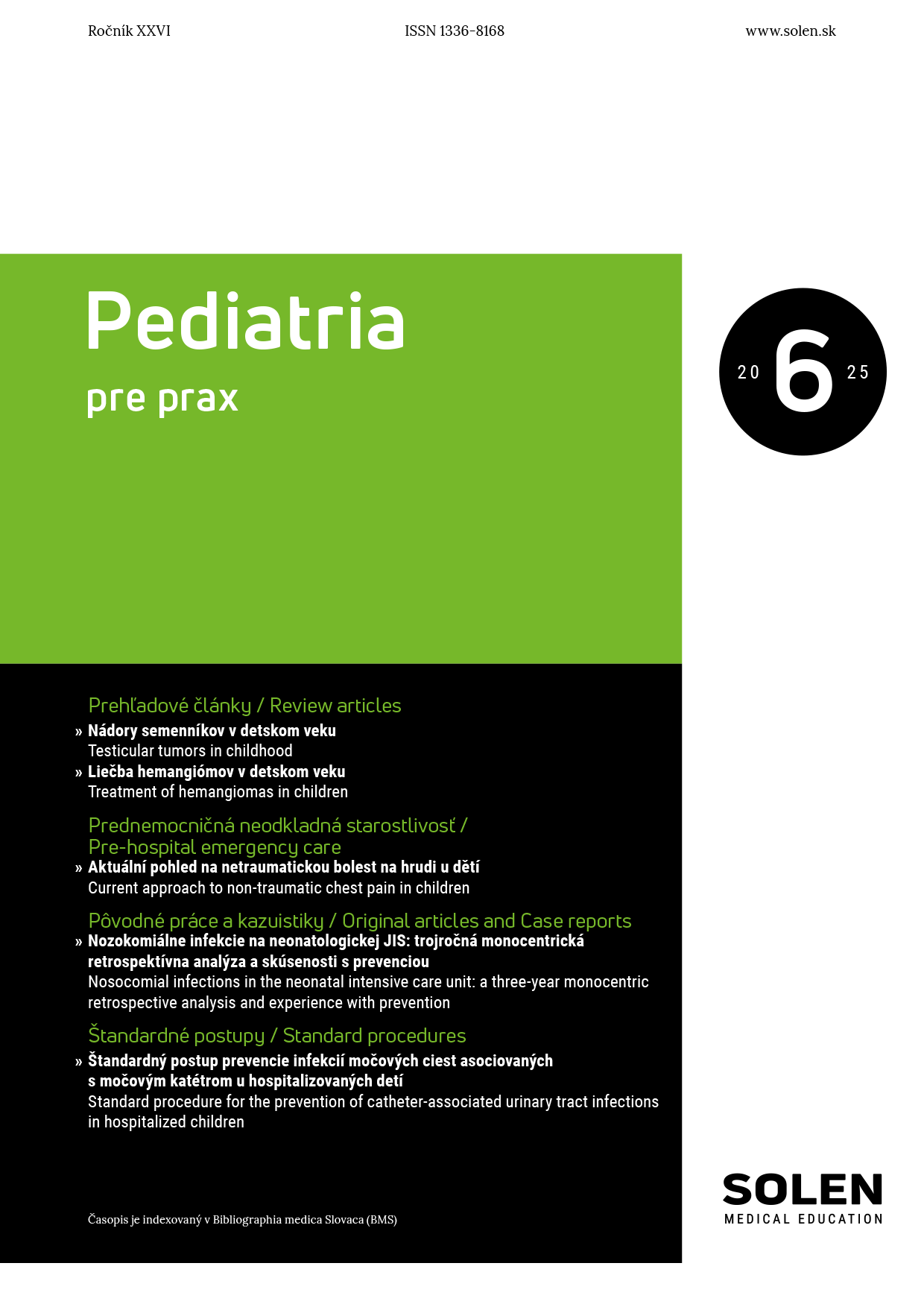Psychiatria pre prax 3/2024
ADHD in the spectrum of neurodevelopmental disorders: a case report of a combined deficit with comorbidities
ADHD, as well as Asperger syndrome belong to the spectrum of neurodevelopmental disorders. Like each of them, it is defined among others by impaired growth and maturation of neurons leading to structural and functional abnormalities of the central nervous system. Attempts to a more systematic definition of their biomarkers are related to the effort to find a connection with the functional characteristics of this group of disorders. The progress of brain imaging methods offered by magnetic resonance has evolved from mere volumetry to determination of the structural abnormalities, herein focused at the white matter. As in all neurodevelopmental disorders overlapping areas exist in findings of white matter structure and in genomic findings, as well as an existing parallel in overlap of clinical manifestations. All neurodevelopmental disorders in general share a cognitive impairment the profile of which being characteristic for a particular diagnostic unit to some extent. However, its form in each individual patient is at the same time unique, being mostly composed of several types of deficits. The differentiation of individual aspects of cognition can be found in a detailed neurocognitive examination. The case report describing a 33-year-old patient thus offers a view of a neurodevelopmental continuum, not being strictly separated in diagnostic units. In each patient, instead of being fixed to diagnostic units it is advisable to focus on individual symptoms where we expect the possible benefit of pharmacotherapy. In case of a multiple deficit with comorbidities, we cannot avoid polypharmacotherapy, though as considerate as possible.
Keywords: neurodevelopmental disorders, ADHD, Asperger syndrome, cognitive impairment, executive functions impairment, Difuse Tensor Imaging, fraction anisotropy

















